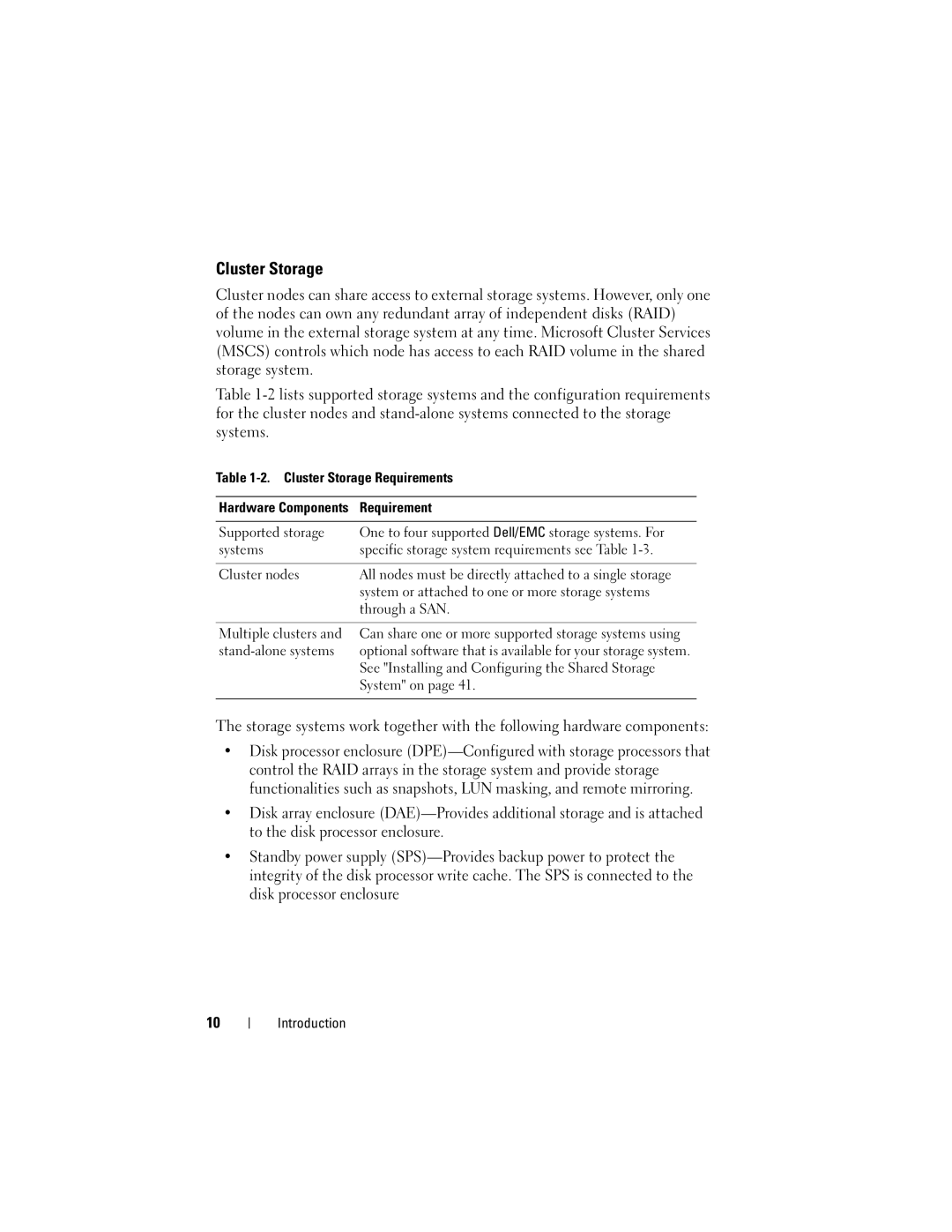
Cluster Storage
Cluster nodes can share access to external storage systems. However, only one of the nodes can own any redundant array of independent disks (RAID) volume in the external storage system at any time. Microsoft Cluster Services (MSCS) controls which node has access to each RAID volume in the shared storage system.
Table
Table 1-2. Cluster Storage Requirements
Hardware Components | Requirement |
|
|
Supported storage | One to four supported Dell/EMC storage systems. For |
systems | specific storage system requirements see Table |
|
|
Cluster nodes | All nodes must be directly attached to a single storage |
| system or attached to one or more storage systems |
| through a SAN. |
|
|
Multiple clusters and | Can share one or more supported storage systems using |
optional software that is available for your storage system. | |
| See "Installing and Configuring the Shared Storage |
| System" on page 41. |
|
|
The storage systems work together with the following hardware components:
•Disk processor enclosure
•Disk array enclosure
•Standby power supply
10
